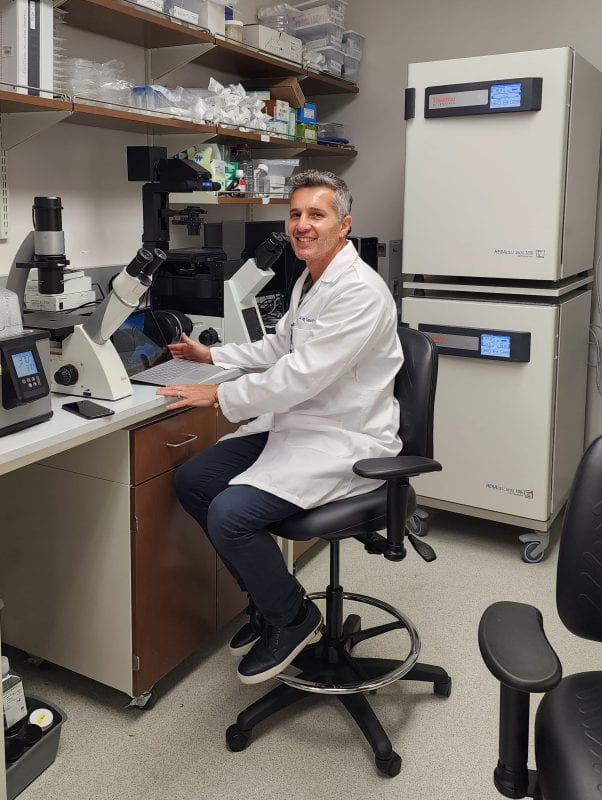Get to Know DoR: Horacio Novaira, Ph.D., Cell Therapy Core Manager


Horacio Novaira, Ph.D., is the Manager of the Cell Therapy Core Facility (CTC) located within the Center for Collaborative Research (CCR), which is part of NSU’s central research department, the Division of Research and Economic Development (DoR).
What role do you play at NSU?
In my role as the Cell Therapy Core manager and directed by Dr. Robin Krueger (Scientific Director for Research Facilities – Division of Research and Economic Development at the CCR), I am responsible for the function and operation of the CTC to support ongoing research and provide a service of excellence to the NSU research community.
What types of research do you support?
At the CTC, I oversee operations from, cell culture (stem cells, primary and stable cells lines), PBMC isolation, lentiviral production, siRNA and shRNA gene knockdown, gene over-expression, flow cytometry, light and fluorescent microscopy, analysis of nanoparticles by Nanosight, high-performance chromatography by FPLC, as well as, project consulting, students and personnel training, experimental sample preparation, data processing and analysis/interpretation of results to ensure high level of quality and reliability of the generated results.
What was your journey that brought you to NSU?
I have over 20 years of experience in research with a strong background in physiology, immunology, biochemistry and molecular biology techniques.
In my earlier career, I had specific training in reproductive endocrinology obtained during my post-doctoral fellowship at The Johns Hopkins University School of Medicine that complemented my PhD in Physiology and established a strong foundation for me to continue to build a successful career as a scientist. In particular, my research focused on kisspeptin signaling, which is vitally important for a complete understanding of GnRH regulation and mammalian reproduction. My research included the identification and characterization of cis-regulatory DNA elements, transcription factors and epigenetic mechanisms involved in the regulation of hypothalamic GnRH by kisspeptin and their receptor, KISS1R, in in-vivo and in-vitro models. A better understanding of how GnRH expression is regulated is important for developing new treatment paradigms for patients with central precocious puberty (CPP), idiopathic hypogonadotropic hypogonadism (IHH) and infertility, as well as expanding the actions of GnRH in the reproductive axis.
In addition, before joining the NSU, as a scientist in the Division of Pediatric Hematology, Oncology and Stem Cell Transplantation at the University of Miami Miller School of Medicine, my research focused on murine models’ development of successful tolerance induction regimens in hematopoietic stem cell transplantation (HSCT). Immune tolerance induction strategies in mutant mice with sickle cell disease for their potential application in pediatric non-malignant blood disorders was my leading project.
After the immediate departure of the principal investigator, I joined the Department of Microbiology and Immunology, also at the University of Miami Miller School of Medicine. In this role, I was performing studies evaluating the regulation pathways of chronic inflammation mediated by NF- κB in HIV and KSHV-infected cells, assessing dysregulation of host cellular mechanisms by viral oncogenes and lentiviruses containing shRNA against targets genes with the aim of elucidating undiscovered viral physiopathology mechanisms.
What do you enjoy doing outside of work at NSU?
Outside of work I really enjoy going to the gym, and I already joined NSU RecPlex on the Davie/Fort Lauderdale Campus, which is an amazing facility. Also, I like to travel and visit cities that I have never been, as well as to visit paradisiac beaches and National parks all around the world. To be honest, the best part of traveling is to experience the local food and learn other people’s culture in different places of the world.
And lastly, if you have never heard about “Operation smile”, we need your help. Millions of children living with untreated cleft conditions have difficulty eating, breathing, speaking, and being accepted by many of their peers and communities. A free surgery to repair cleft lips is changing the life of many of them!